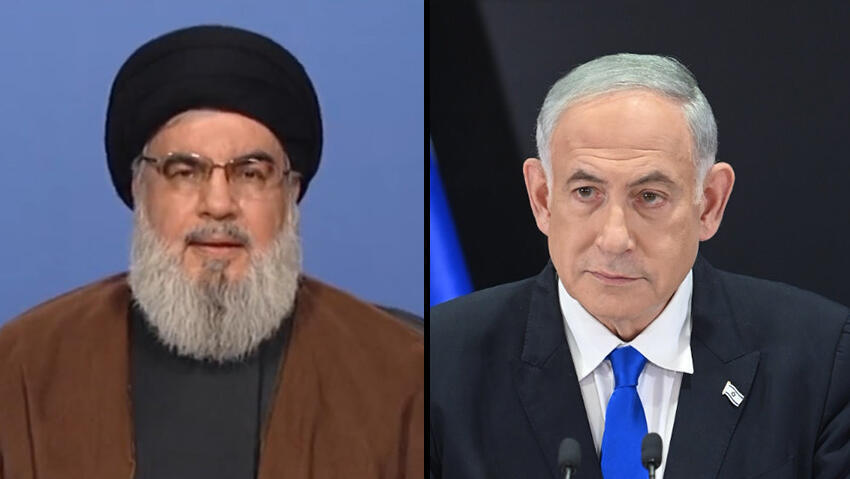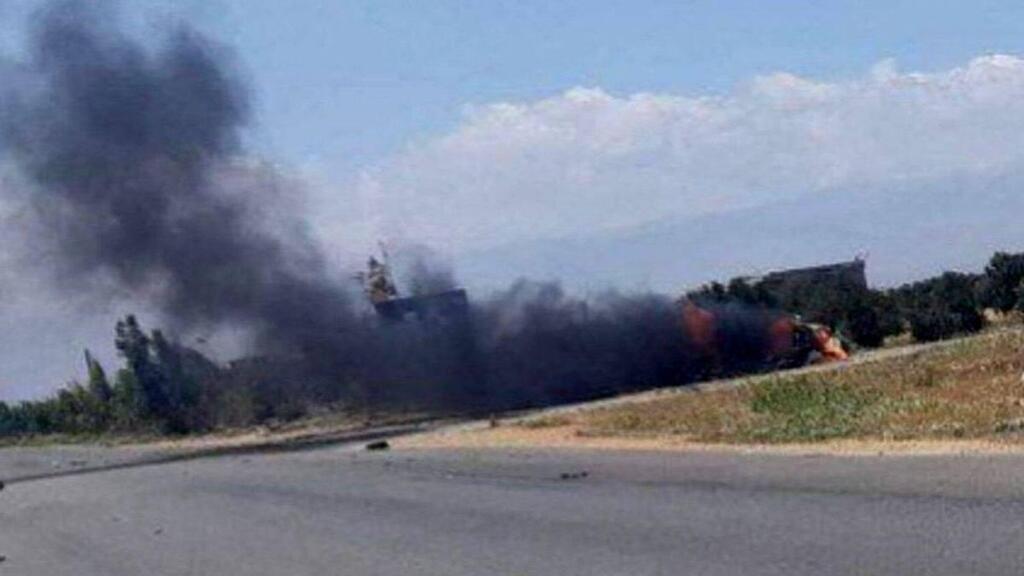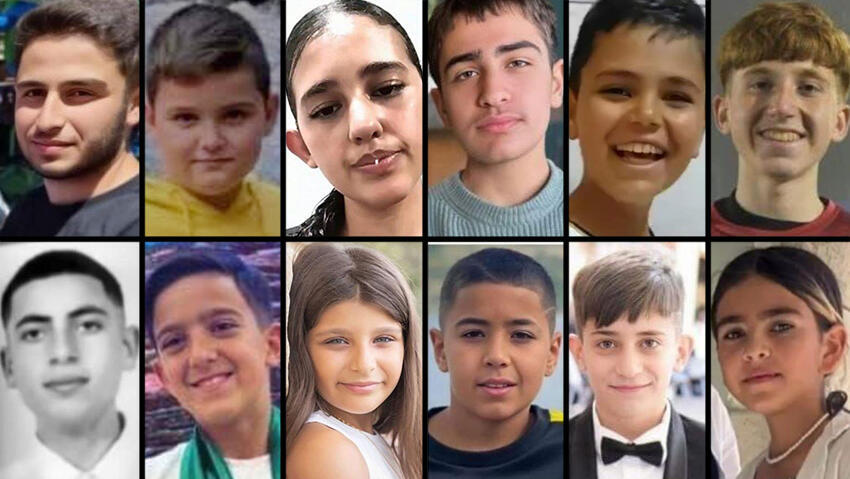Getting your Trinity Audio player ready...
Israel is still waiting for the operational opportunity for a retaliatory strike in Lebanon that was approved by the Security Cabinet on Sunday, two days after the massacre that claimed the lives of 12 children and teenagers in Majdal Shams. The target of the strike was decided by Israeli officials and brought for approval in the Cabinet discussion.
The IDF is waiting for the right chance to carry out the strike, which involves many considerations, including the possible presence of non-combatants near the target, the possibility of striking senior Hezbollah figures, or striking strategic terror sites.
3 View gallery


Hezbollah leader Hassan Nasrallah, Prime Minister Benjamin Netanyahu
(Photo: Yair Sagi)
Other preparations also include defense needs and readiness efforts. The response options prepared by the IDF weren’t presented to the Cabinet out of fear they would be leaked and thereby influence future decisions.
Israel also estimates that while several days of fighting may follow the strike, the move would still be a “limited” one only. Similar statements were made by Israeli officials to the Reuters news agency.
"Israel wants to hurt Hezbollah but not drag the Middle East into all-out war," a senior security official told the agency. "We’re preparing for the possibility of several days of fighting," two other officials said.
Meanwhile, a Hezbollah Radwan force operative was killed on Monday in a strike in southern Lebanon. Local reports mentioned two dead and three injured, including civilians, in an airstrike on a vehicle and motorcycle in the Meiss Ej Jabal area.
The government’s ministers authorized Prime Minister Benjamin Netanyahu and Defense Minister Yoav Gallant to choose the manner and timing of the response on Sunday. Finance Minister Bezalel Smotrich and National Security Minister Itamar Ben-Gvir abstained, demanding a harsher measure.
A security source said, "You have to decide what your goal is and derive actions from that goal in order to respond more harshly than you have in the past while trying to circumvent an all-out war. You can’t base your actions on avoiding war because things might get complicated." At the end of the Cabinet meeting, estimations said a severe response to the attack was very likely.
The international stage and equally the U.S. is also putting pressure on Israel to opt for a measured response, while the French are pressing the Lebanese. A senior official in U.S. President Joe Biden’s administration that he didn’t think “we’re heading toward an all-out war in Lebanon.” He added, however, that a “miscalculation could lead to war.”
Lebanese Parliament Deputy Speaker Elias Bou Saab told Al Jazeera on Sunday, "If civilian casualties occur or if Beirut and its suburbs are attacked, we won’t consider this as a limited response."
Another senior Israeli official said that although Israel’s response would be severe, it wouldn’t lead to a full-scale war. However, he noted that the Israeli strike is expected to be met with an unusually harsh response from Hezbollah.




